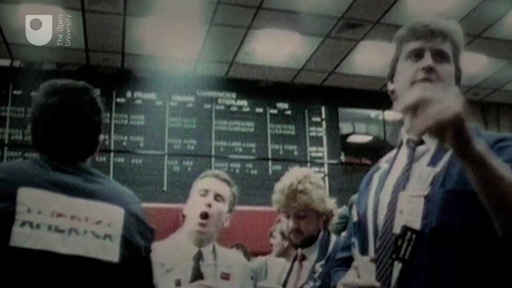4.3.2 Bubbles
Periodically, periods of manic buying affects financial markets – particularly share markets.
There have been many examples of share prices ballooning skywards on upbeat speculation about the prospects for certain companies, only to plummet on discovery that these prospects are more a mirage than a reality.
In these circumstances, the share price movement is like an expanding bubble that, at some point, will inevitably burst.
Watch the following video, in which a number of specialists in personal and corporate finance discuss what is meant by the term ‘bubble’.

Transcript
[Sound of bubbles]
[CRASH]
[Bubble sounds]
The origin of the term ‘bubble’ is thought to emanate from the fate of the South Sea Company. The saga of the South Sea Bubble in the eighteenth century has great similarities with other more contemporary bubbles, such as the so-called dot-com bubble in the early 2000s.
The South Sea Company was formed in 1711 and was given a monopoly to trade in Spain’s South American colonies. The overhyped prospects for this business in the New World built up a frenzy of speculation in the shares issued by the South Sea Company. This reached a head in 1719 and 1720. The company’s share price rose from £128 in January 1720 to £1000 by August, only to collapse to £150 in the subsequent month. The extent of involvement in this share price bubble, including members of the Government, and the sharp decline in the share price resulted in widespread bankruptcies and company failures. Curiously, the South Sea Company itself survived, albeit in a restructured form, and traded for another century.
Spotting bubbles is a crucial skill in investment management. If you have invested in a share whose price is rising rapidly, you need to determine whether this is because of the company’s performance or simply hype, based on unrealistic expectations about the company’s potential. If it is the latter, get out before the bubble bursts!
